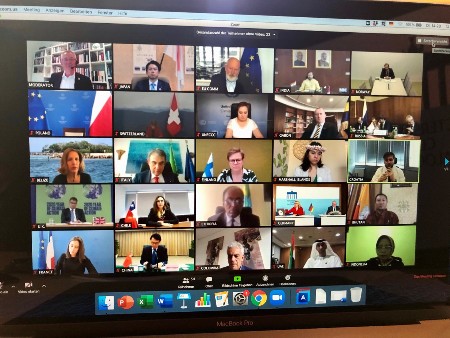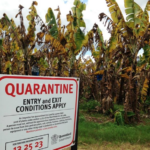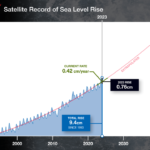April 29, 2020 – The end of the Petersberg Climate Dialogue was summed up in a speech by Germany’s Environment State Secretary, Jochen Flasbath, who stated, “globally, we have to shape economic stimulus so that we are also able to achieve the targets of the Paris Agreement and the UN Sustainable Development Goals. In addition, we must ensure that the countries of the global South with high debt burdens remain capable of action despite the Covid-19 pandemic.” On the table will be debt relief programs designed to help the Developing World to recover from the pandemic while maintaining efforts to keep greenhouse gas (GHG) emissions low.
Martin Callanan, a member of the House of Lords in the UK, and the country’s Minister for Climate Change, also noted that beyond the fight to contain the pandemic, the British “must not lose sight of the immense challenge of tackling climate change and transitioning to a greener, climate-resilient global economy.”
With 30 climate ministers in attendance, the virtual conference concluded with all the right words being stated, but according to May Boeve, Executive Director of 350.org, the global climate change advocacy group, with no “firm commitments to a green and just recovery.” Those sentiments were echoed by Fridays for Future Germany, a chapter of the youth climate movement started by Greta Thunberg. In a tweet, the Fridays for Future Germany group stated “What we need is a clear commitment to increased climate goals that are in line with 1.5-degrees. Empty words will not help us here.”
Angela Merkel, Germany’s Chancellor, addressed the meeting insisting on the European Union committing to a GHG reduction target better than the current 40% commitment by 2030. She called for a 50-55% reduction and for Europe and the global community to “prove our steadfastness.” Carbon pricing is just one of the instruments Chancellor Merkel believes lie in our bag of tools, and that the global community needs to adopt. Merkel called for investments in climate-friendly infrastructure as part of the overall strategy to right the world economy during the post-pandemic recovery.
Chancellor Merkel described the difficult discussions that lie ahead on where money should be spent. “If we look at the economic damages that the coronavirus crisis has caused in our respective budgets, the more important it will be to keep a firm eye on climate action when we introduce economic stimulus.” She called for nations to focus on future-proof technologies as part of their international commitment.
The European Union’s Green Deal could become the basis for global recovery strategies with investments in wind, hydrogen, energy efficiency, and the conversion of fossil-fuel-based heating and cooling to the full range of renewable options. The Petersberg discussions included conversations about extending the EU Green Deal to Africa and the launching of investments in innovative renewable energy projects there.
Readers of my post to this site yesterday describing the opening day of the Petersberg Climate Dialogue asked what countries, organizations, and cities were participants at this virtual conference? That was a bit difficult to find out, but here is a partial list of those countries and organizations in attendance in addition to Germany and the UK:
- Italy
- Jamaica
- China
- India
- Japan
- Pacific island states
- European Union
- Development Bank of Southern Africa
- De Nederlandsche Bank
- BlackRock
- The International Monetary Fund
- Green Climate Fund
- International Finance Corporation
- Tufts University
- London School of Economics
- Allianz SE
The United Nationsm of course, participated. Mark Carney, the newly-appointed special envoy for Climate Action, and former Governor of the Bank of England, and the Bank of Canada, was very much present, as was the UN’s Secretary-General, António Guterres, who addressed the group on April 28th.
In his speech, Guterres talked about how “delayed climate action will cost us vastly more each year in terms of lost lives and livelihoods, crippled businesses and damaged economies,” and while acknowledging that “COVID-19 has put the lives of billions of people around the globe in turmoil,” the actions of all nations in the post-pandemic world requires “political will” to adopt ambitious “mitigation, adaptation, and financing” to achieve “carbon neutrality by 2050.” He stated, “like the coronavirus, greenhouse gases respect no boundaries. Isolation is a trap. No country can succeed alone.”
So far 121 of the 195 countries in the world have committed to becoming carbon neutral by the mid-century mark which begs the question, why not all? One of the reasons is the United States’ withdrawal from the Paris Climate Agreement of 2015, a repeat performance by that country when it comes to global climate commitments. The U.S. pulled the same stunt under George W. Bush in withdrawing from the Kyoto Protocol.
The lack of U.S. participation to commit to carbon neutrality by 2050 is a big hole in the global strategy for a post-pandemic world since it is a leading member of the G20 countries who today produce more than 80% of global GHG emissions, and account for 85% of the world’s economic production.
















